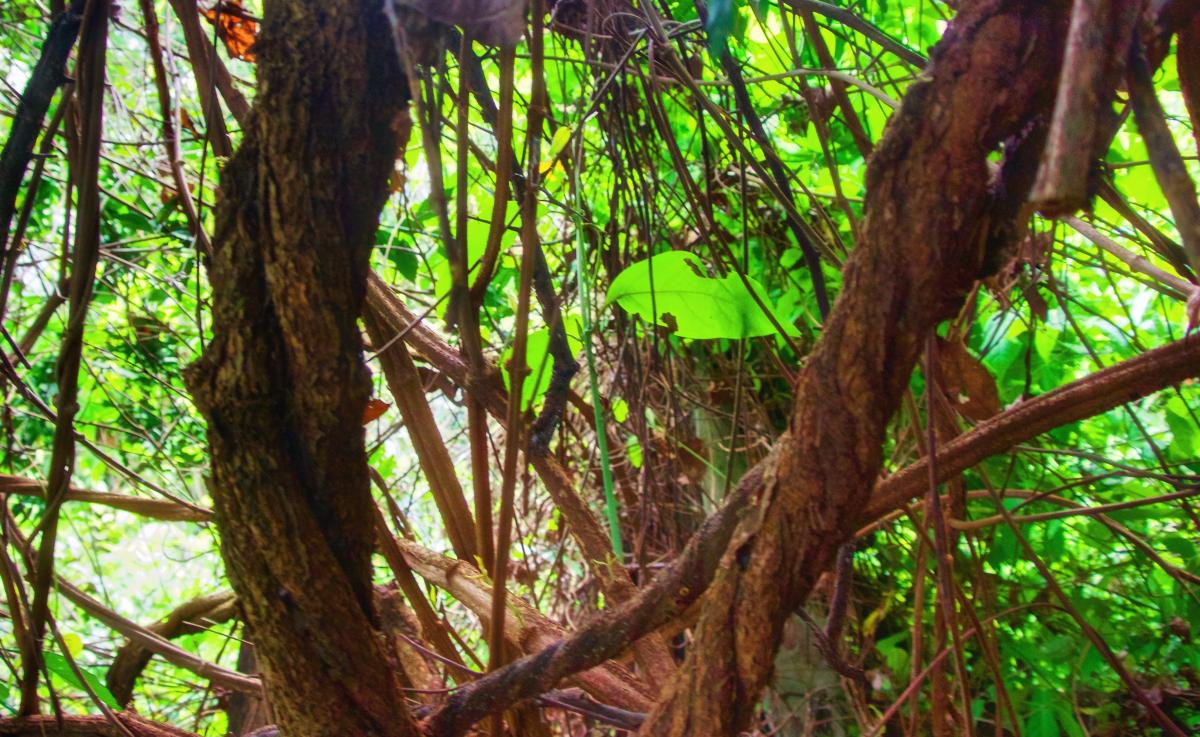- Dutch Freedom of Religion on Pause for Santo Daime - March 15, 2018
- Religious Use of Ayahuasca in the Netherlands Under Threat - February 6, 2018
On January 31, 2018, a very important and delicate court case took place in Amsterdam. It was the appeal court case about the confiscation of, altogether, around 100 kg of daime from three members of the Santo Daime church in Amsterdam during 2016.
The Prosecutor’s Office (OM) in the Netherlands collected several Santo Daime import cases regarding Céu da Santa Maria, a Dutch Santo Daime church in Amsterdam. Three persons who were caught at Amsterdam airport with a lot of Daime were brought to court in a collective court case on August 25, 2016 in Haarlem.
In this court case, the prosecutor made it clear that they wanted to put a halt to the import and use of Santo Daime/ayahuasca in the Netherlands. Their main argument was that the presence of DMT as a scheduled substance was, in their opinion, a “danger to the public health”. Add this to the decision from the European Court of Human Rights (ECHR) on another Dutch case involving some people who presented themselves as members of Santo Daime; they concluded that DMT prohibition is necessary in a democratic society for the protection of public health and that, therefore, laws prohibiting ayahuasca use are valid (2014).
In the court case of 2016, the court ignored the arguments of the prosecutor and followed the defense of Adéle van der Plas, who was, for more than 23 years, our beloved lawyer of the Santo Daime in the Netherlands, and who won, up until now, all the criminal cases against the Santo Daime.
Most of the arguments were already mentioned in the earlier court cases of Amsterdam 2001, Haarlem 2009 and Amsterdam 2012; now, added to Haarlem 2016.
Here you’ll find the full written verdict (in Dutch). As you can read, the court was very specific, and gave in no way the impression that, with this verdict, everybody is now allowed to import ayahuasca.
As expected, the Prosecutors Office appealed this verdict. So, on January 31, 2018, this case came to the Appeal Court. During this appeal court case, we understood there was an exceptionally critical court in front of us, and it was clear that they based their impression partly on the very recent Rambam broadcast, a Dutch satirical TV show about consumer protection. In this program, the crew went with a hidden camera to several ayahuasca providers. Altogether, it gave a bad impression because the vendors in their examples practiced poor pre-screening and made all kinds of medical claims. The filmmakers definitely had a point; but, sadly enough, they only showed bad examples. The episode can be seen here in Dutch. Also a bit painful was that the head of the appeal court based her information about ayahuasca on Wikipedia!
The court case took quite some hours, and there was an ongoing discussion between Adéle van der Plas and the Advocate General (AG) who represented the Prosecutors Office. These discussions were mostly about very detailed juridical nuances and, as Adéle is extremely informed about all these details, she could easily counter the arguments of the AG and prove her points with the related juridical literature. So, one of the questions that remains is if the appeal court will follow Adéle’s argumentation or the AG’s.
Another point of discussion was how to look at this case, “in concreto” or “in abstracto,” with a choice for one or another being significant for the outcome. Here is an explanation (in Dutch).
As one of the worries of the OM is that “there is a kind of explosion of ayahuasca providers in the Netherlands where the dangers and risks are growing too, like Rambam’s TV Show showed. And with this they lose the grip and sight on the whole situation and the public health is at risk.”
At this point, the churches agreed with the OM, so they offered a solution where a self-regulating organ would represent the groups who are covered by article 9 ECHR and work in a transparent and responsible way. With this defense strategy, the appeal court is offered a way out based on “Least Restrictive Means in the Case Law of the European Court of Human Rights.” We are not sure if the appeal court will make use of it. As this is a complicated case, the final verdict will take four weeks instead of the usual two. And, to be honest, we left the court a bit more worried than we entered.
Viva a liberdade do Santo Daime! Viva a liberdade da ayahuasca! Viva a Adèle!
Take a minute to browse our stock:
Did you enjoy reading this article?
Please support Chacruna's work by donating to us. We are an independent organization and we offer free education and advocacy for psychedelic plant medicines. We are a team of dedicated volunteers!
Can you help Chacruna advance cultural understanding around these substances?
Become a Chacruna Member
To make a direct donation click the button below:
Wednesday, June 9th, 2021 from 12-1:30pm PST
REGISTER FOR THIS EVENT HERE
There is growing enthusiasm in Jewish communities about possible ancient use and modern applications of plant medicine in Jewish spiritual development. Psychedelic Judaism introduce new potential modes of healing...











